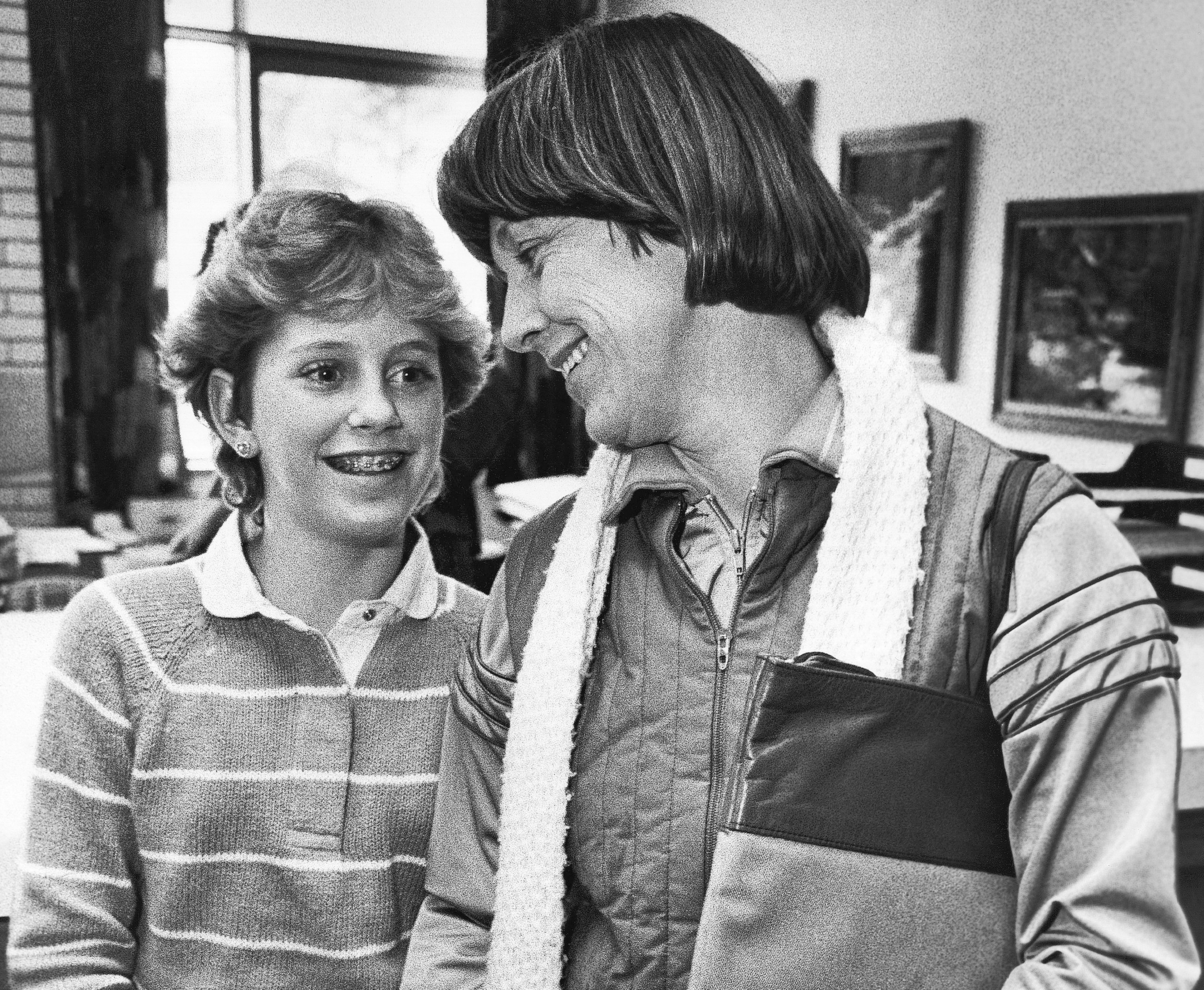How classified documents became a schoolgirl's show and tell
Dramas over the mishandling of classified documents at a high level of the U.S. government aren't all new

Your support helps us to tell the story
From reproductive rights to climate change to Big Tech, The Independent is on the ground when the story is developing. Whether it's investigating the financials of Elon Musk's pro-Trump PAC or producing our latest documentary, 'The A Word', which shines a light on the American women fighting for reproductive rights, we know how important it is to parse out the facts from the messaging.
At such a critical moment in US history, we need reporters on the ground. Your donation allows us to keep sending journalists to speak to both sides of the story.
The Independent is trusted by Americans across the entire political spectrum. And unlike many other quality news outlets, we choose not to lock Americans out of our reporting and analysis with paywalls. We believe quality journalism should be available to everyone, paid for by those who can afford it.
Your support makes all the difference.On a winter's day in 1984, a briefcase stuffed with classified government documents showed up in a building in Pittsburgh, borne by someone who most certainly wasn't supposed to have them.
That someone was 13-year-old Kristin Preble. She brought the papers to school as a show-and-tell project for her eighth grade class. Her dad had found them in his Cleveland hotel room several years earlier and taken them home as a souvenir.
As a different sort of show and tell unfolds in Washington over the mishandling of state secrets by the Trump and now Biden administrations, the schoolgirl episode from four decades ago stands as a reminder that other presidents, too, have let secure information spill.
The Grade 8 escapade and one known as Debategate both involved the mishandling of classified documents that Democratic President Jimmy Carter used to prepare for a debate with Republican rival Ronald Reagan in Cleveland on Oct. 28, 1980. In the latter instance, the Reagan campaign obtained — some said stole — Carter's briefing materials for the debate.
In today's docu-dramas, special counsels have been assigned to investigate Donald Trump's post-presidential cache of classified documents, which he initially resisted turning over, and Joe Biden's pre-presidential stashes, which he willingly gave up when they were discovered but did not disclose to the public for months.
With classified material also found at former Vice President Mike Pence's home, there is now a palpable sense in the halls of power that as more officials or ex-officials scour their cabinets or closets, more such oops moments will emerge.
The Carter files fell into Kristin's hands through a somewhat meandering route.
Two days after the 1980 debate, businessman Alan Preble found the papers in his Cleveland hotel room, apparently left behind by Carter press secretary Jody Powell. Preble brought them to his Franklin Park home where they sat for more than three years as a faintly appreciated keepsake.
“We had looked through them but didn’t think they were important,” Carol Preble, Kristin's mother, said back then, apparently unimpressed by the classified markings. But for social studies class, Kristin "thought they’d be real interesting. I thought they’d be great, too."
Off the girl went to Ingomar Middle School on Jan. 19, 1984, with the zippered briefcase.
Teacher Jim DeLisio's eyes popped when he saw the warnings on the documents inside. Among them: “Classified, Confidential, Executive” and “Property of the United States Government."
“I truly didn’t want to look at it,” he said then. “I was just too … scared. I didn’t want to know.”
Curiosity got the better of him. That night, he said, he and his wife and daughter pored over the documents, containing “everything you’d want to know from A to Z” on world and U.S. developments. One folder was marked “Iran." Libya was also in the mix.
Unable to reach Kristin's family by phone, DeLisio the next day called the FBI, which swiftly retrieved the papers.
A Justice Department official who spoke to The Associated Press on condition of anonymity at the time said the bundle of documents was 4 inches (10 centimeters) thick.
Despite steering the secrets back to their proper place, DeLisio was reprimanded by school officials for calling the authorities before reaching the Preble family or them. The discovery fed into a broader investigation by a Democratic-led congressional committee of the official Carter papers obtained by the winning Reagan campaign.
The Reagan Justice Department declined calls by the committee to appoint a special counsel in that matter. A court case trying to force that appointment failed and no criminal case was brought. Debategate faded, but not the concern over how classified documents are handled by those in power.
As for Kristin, she earned a niche in history and a “B” on her school project.
___
This story draws on one by Associated Press writer Marcia Dunn in January 1984, and research by Rhonda Shaffner in New York.